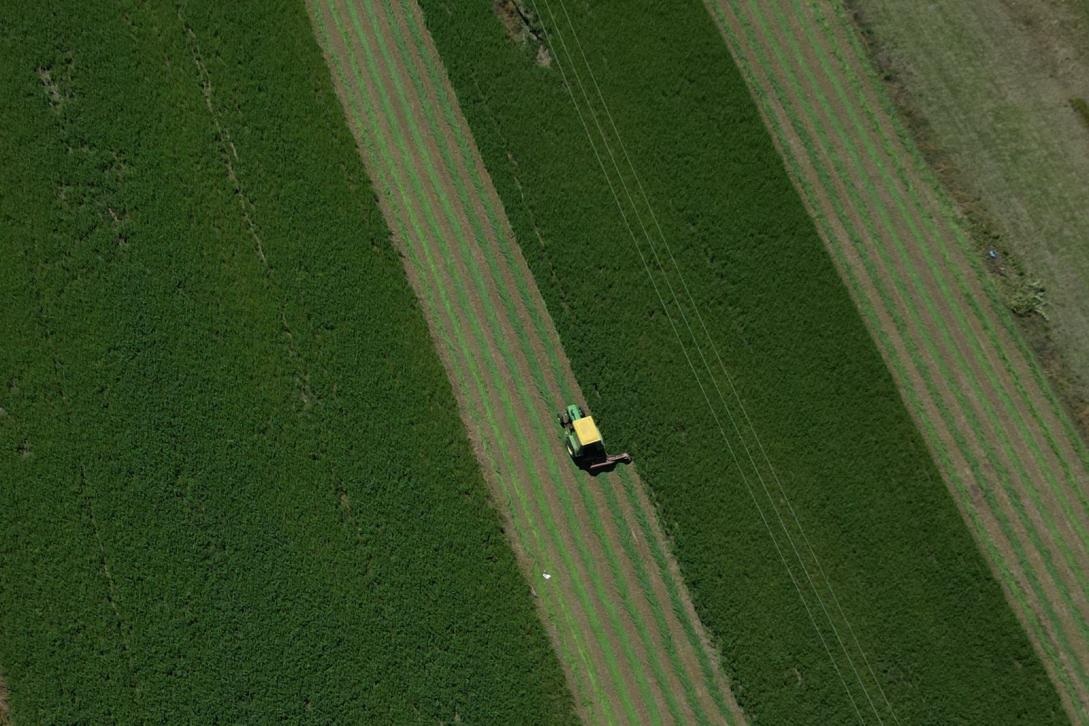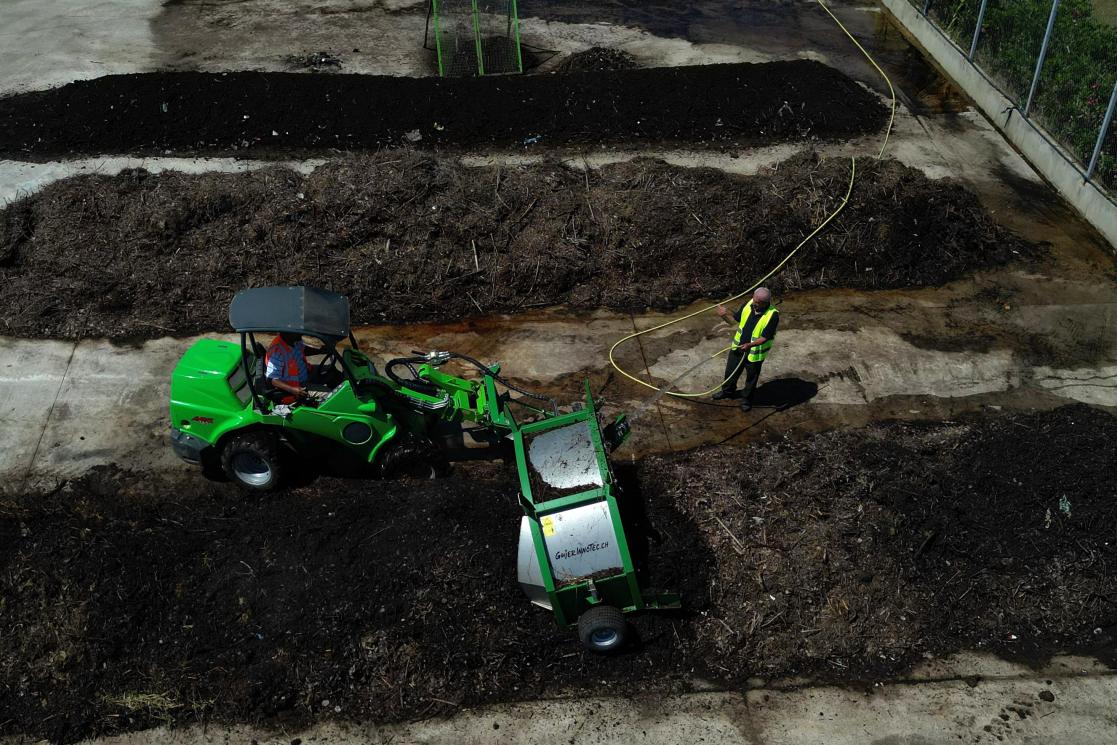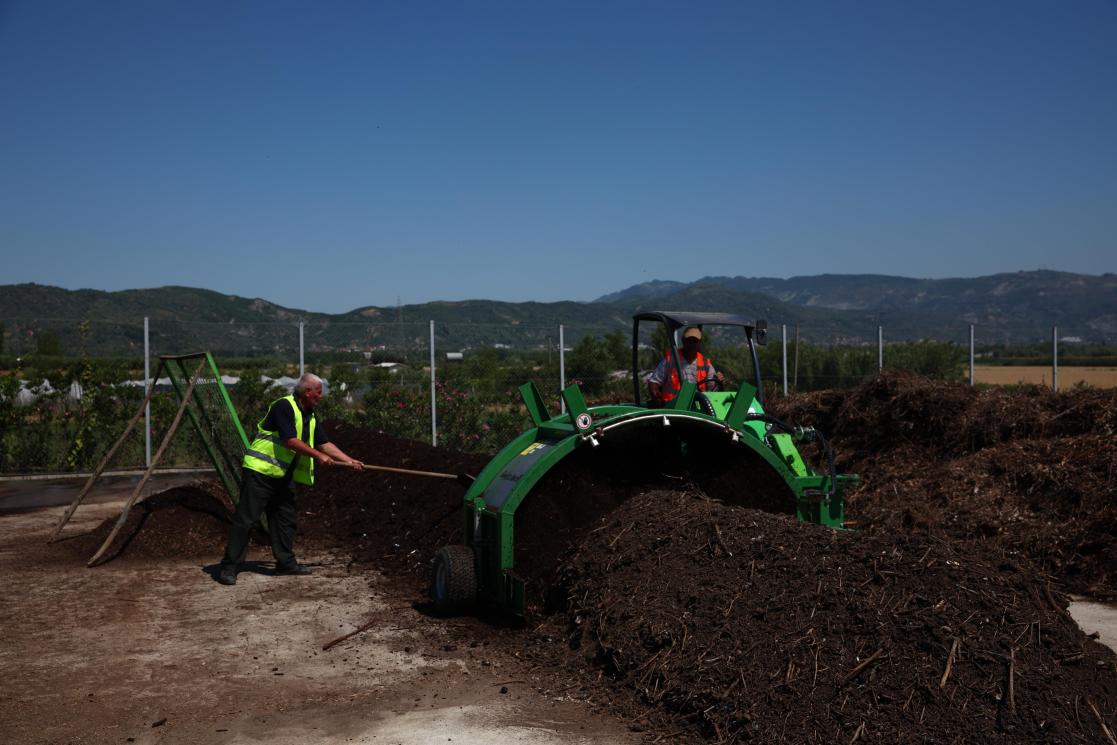Turning waste into fertilizer, how a composting center in Cërrik is changing the future

300 tonnes of green waste per year, which was previously burned — emitting CO₂ — or sent to an incinerator, is now composted in Cërrik, near Elbasan. This initiative provides the city not only with a cleaner environment by lowering its environmental impact and increasing income opportunities, but also helps farmers grow plants, as the waste is turned into fertiliser.
The Composting and Recycling Centre in the Municipality of Cërrik is located among green fields on the outskirts of the city, on the site of what was once the city’s waste collection area. Built as part of the EU for Circular Economy and Livable Cities project, supported by Germany (other composting centers are planned to be constructed from EU4CELC, cofinanced by EU and Germany) it also prevents the decomposition of organic materials that would otherwise produce methane — a gas 20 times more harmful than CO₂.

EU in Albania
Twice a week, a small truck collects green waste: branches, garden trimmings, greenhouse waste, and seasonal pruned branches from households, along with low vegetation and grass. During the spring and autumn, the quantity of waste collected fluctuates due to seasonal activity. As a typical agricultural area, the majority of Cërrik’s waste is organic and green waste. A team of five trained employees at the centre oversees several laboratory tests on the final product, confirming that it is a safe and high-quality material for use as fertiliser.
The composting process involves several stages, from collecting and storing the organic material to the final decay phase. Initially, the waste is shredded, reducing branches to almost ground material. It is then covered and turned several times over a period of 5–7 months, regularly moistened with water, and monitored for temperature — which must reach 65°C to eliminate any seeds present and ensure the material is as sterile as possible. Finally, the material is sieved, and the compost is sold as fertiliser to farmers, reducing their need to purchase artificial alternatives.
The centre processes around 300 tonnes of green waste annually, producing approximately 150 tonnes of compost.

EU in Albania
“We process only a part of Cërrik’s waste, but initially, we didn’t realise how much green waste we actually had. Now, citizens are more aware — they no longer burn green waste or throw it into waste containers. They leave it next to the bins for us to collect. In this way, we benefit several times over from this material. First, by not burning it, we avoid creating pollution. Then, we save on the costs of sending it to the incinerator. And finally, we compost and sell it. When we calculate the direct and indirect income, we see that we cover the centre’s operational costs, including staff salaries and maintenance, while also creating a cleaner city,” explains Enea Tacja, Head of the Public Services Agency at Cërrik Municipality, outlining how this initiative is financially self-sustaining.

EU in Albania
The composting centre is expected to receive a new shredder with a capacity of 30–50 tonnes per hour and a larger, self-loading, self-unloading truck equipped with a crane — enabling it to expand its coverage across a larger area of Cërrik. The facility is also capable of composting food waste, though collecting it has proved difficult due to the lack of waste separation at source.
From Mesopotamian sustainable gardening recorded on clay tablets to Japan’s Bokashi method; from Greek, Roman and Egyptian pit composting to Germany’s Hügelkultur system, and through to modern practices, humankind has long sought ways to make cities more liveable by treating waste responsibly. Composting reduces the need for chemical fertilisers, increases soil moisture retention, prevents soil erosion, supports plant growth, reduces plant mortality rates, saves money, prevents greenhouse gas formation, mitigates climate change, enhances water quality — and overall, delivers economic, environmental and social benefits that improve our quality of life.
Background Information
The EU for Circular Economy and Livable Cities project is co-financed by the European Union (EU) and the German Federal Ministry for Economic Cooperation and Development (BMZ), and implemented by GIZ Albania in collaboration with the Ministry of Tourism and Environment (MoTE). The project supports Albania’s transition towards a circular economy and empowers municipalities to build sustainable cities of the future. It contributes to improved public health, green job creation, and better energy efficiency.
The project focuses on fostering collaboration between stakeholders, leading to more efficient waste management services, with a particular emphasis on data management and the establishment of key performance indicators. These measures help set clear objectives, track progress, and ensure accountability. Capacity development and training for waste management authorities at all levels is also a central element, enabling the effective implementation of circular economy initiatives.





